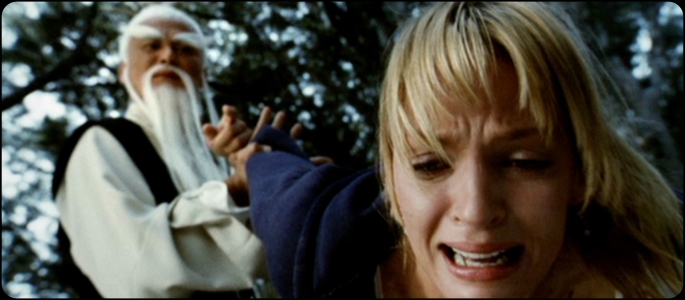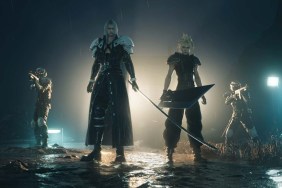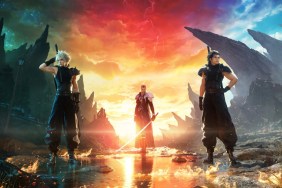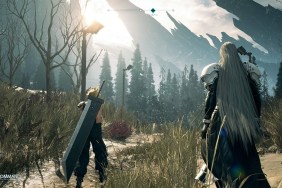Square Enix could learn a few things from Namco Bandai. Hopefully the lessons of 2011 sink in.
Final Fantasy XIII-2 made its retail debut last month, topping the charts by selling a hefty 524,000 copies. In the time since, it has managed to climb to 700,000 units shifted. For almost any other series, that would be amazing and far beyond expectations. For Final Fantasy, and for that matter, a “main line” title on the hottest console for Japanese RPGs, that’s a critical miss. To compare, Final Fantasy XIII sold 1.5 million in its first week and previous main-line sequel Final Fantasy X-2 (PS2) sold 1.9 million. FF XIII-2‘s first week wasn’t even that much better than the PSP’s Final Fantasy Type-0 and Crisis Core, which sold darn near the 500k mark in their debuts. In fact, that first week sales figure is actually about a thousand units shy of September’s Tales of Xillia. The Tales series is received well in Japan with practically every release, but it never comes close to Final Fantasy. At three weeks old, it still lags behind Xillia‘s three-week mark of 740,000 units, to say nothing of how it compares with the above-mentioned titles within its own series, not even reaching half their numbers in triple the time to do so. As a lover of the game industry, this is fantastic news. Hopefully Square Enix learns a thing or two from this.
One lesson would be the value of getting your product into peoples’ hands in a timely fashion. With seemingly every Final Fantasy game this generation, we’ve seen a huge development cycles. Even the portable Final Fantasy Type-0, while good, could have benefited from being released a year ago when the PSP was at least marginally more relevant in North America. While Square Enix executives have come out admitting this is problematic, hopefully this helps drive home that message. We just heard the first news of Tales of Xillia in December of 2010, and it saw Japanese release in September. While Final Fantasy XIII-2 can claim that about its press spotlight, we know it was in development right along with the original XIII, so the two aren’t even comparable. While withholding news of its creation was perhaps a smart business move, the way it slowed down the releases of XIII, Type-0, and the still-absent Versus XIII is simply putting Square Enix customers through a stupid waiting cycle that’s beginning to turn a lot of us off.
A second thing Square Enix can learn from Tales of Xillia is that stellar graphics can enhance a game, but graphics aren’t the most important aspect of an RPG. Tales of Xillia has fantastic visuals without pushing the limits of its hardware. Imagine that: a good-looking game that didn’t take six years to develop and didn’t cost $20 million to produce. Main line Final Fantasy games have been consistently ranked among any system’s most graphically impressive titles, but if some of them aren’t, once in a while, fans aren’t going to boycott or start stabbing Yoichi Wada voodoo dolls (again).
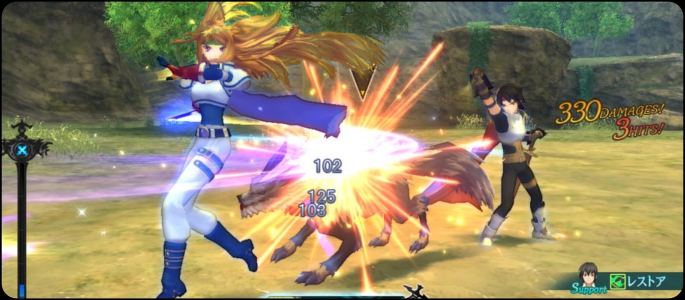
“If it ain’t broke, don’t…do a horrible job of trying to fix it.” Final Fantasy has become known for constantly changing up the interface and game system from one installment to the next. The high demand for HD remakes of past games stands as a testimony to the fact that we as gamers don’t mind playing with similar gameplay styles multiple times. Naturally, everything works best in a balance, so you can’t go completely abandoning attempts at breaking new ground, but one also shouldn’t be afraid to stick close to home once in a while. It’s been over a decade since a main Final Fantasy title used a turn-based system. Could going that route really hurt so much? I played Final Fantasy IV just earlier this year and loved it.
So how did Namco Bandai beat Square Enix at its own game? By caring more about the product. It’s what happened with God Eater all over again. Namco Bandai saw Capcom’s Monster Hunter and wanted to make a similar game because the group believed it could do a good job with it; the highly successful God Eater was the reward. Square Enix tried to capitalize on Monster Hunter‘s success in a different way, seeing it merely as an opportunity to make huge amounts of easy cash rather than taking an opportunity to show the world a great game with their names on it. The result was the poor-selling and critically panned Lord of Arcana. I’m not a huge Namco Bandai fanboy, and that company has problems of its own, but in recent times, this company has made two great moves that Square Enix simply could not. For the good of gamers and the companies involved, I hope all relevant parties are taking notes.
